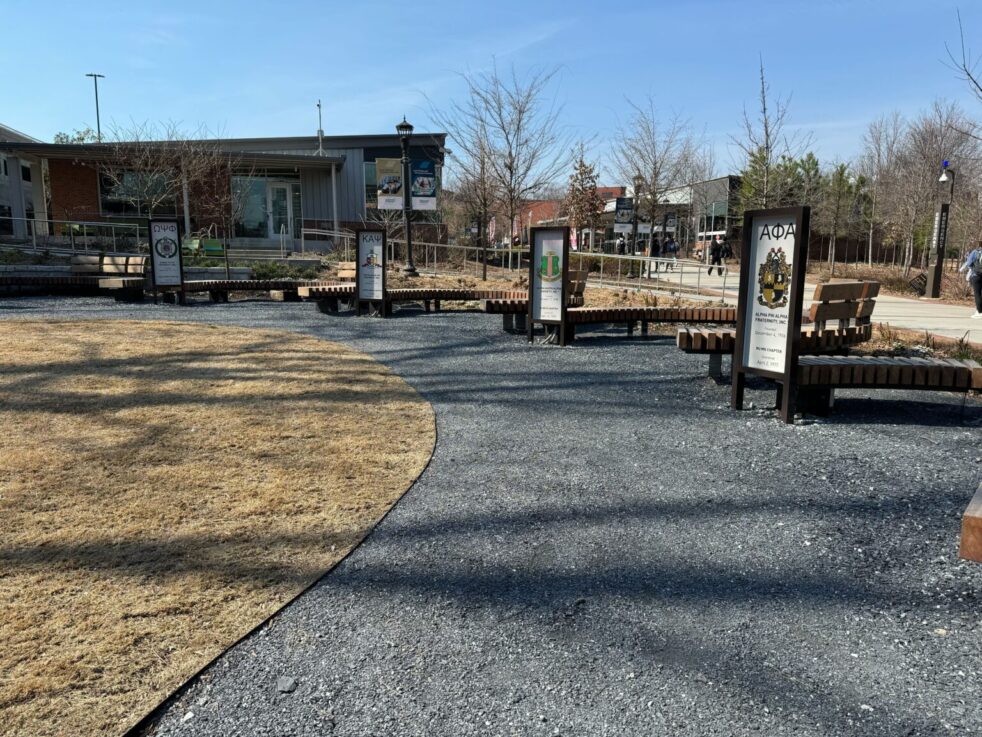This is part two of a two-part series on fraternity and sorority recruitment at Tech.
In the search for the right fraternity or sorority, many Jackets look towards the Interfraternity Council (IFC) and Collegiate Panhellenic Council (CPC) rush week events to help them find the group that fits them best. But many unfairly fail to consider the fraternities and sororities in the Multicultural Panhellenic Council (MPC) and National Pan-Hellenic Council (NPHC) councils due to their having a completely different recruitment process.
Starting with MPC, the fraternities and sororities found in this organization are multicultural-based, with East Asian, South Asian and Latino-based groups being represented at Tech. These organizations tend to be very close and value-based, leading to a recruitment process that is more intimate and strict.
When it comes to fraternities in MPC, they have no formal rush period like IFC has. Instead, throughout the year, each fraternity will host their own events, including tabling and mixers, where prospective members have the chance to get to know the fraternity and what it stands for. Once someone finds which group they think fits them best, they can continue to talk to members and learn more about what they can do to try to join, with each fraternity having its own list of values they are looking for in new members.
On the sorority side of MPC, they have their own version of rush that has a few similarities with IFC’s rush week. Usually done over three weeks, the sororities host small events where prospective members can get to know the different sororities, and once they have gone to at least three events, they become eligible for a bid.
Prospective members can attend any sorority’s event, encouraging them to explore different groups and get to know each one before deciding which one to join.
However, where these sororities differ from IFC and CPC is that once someone accepts a bid, the process to become a fully fledged member takes the entire year. The new members will begin with a couple of months of education to familiarize themselves with their sorority, during which they can’t reveal their membership. Then, at the end of the year, the members will put on a reveal show where they are finally able to announce which sorority they joined and show off all the information they learned.
“Reveal shows have been the most fun, it’s something I look forward to every year…. Anytime you have a reveal show, it’s always a big moment for our chapter,” said Hannah Deogracias, fourth-year INTA and VP external of MPC.
NPHC fraternities and sororities, known as the “Divine Nine,” are a similar organization of nine historically Black Greek chapters that work to help the community and celebrate Black culture. The recruitment process for the Divine Nine is very similar to the MPC fraternities’ recruitment process. While NPHC might host some organization-wide events, it is entirely up to each fraternity and sorority to decide when they want to do events and how they want to accept their members.
Given the relatively unstructured nature of MPC and NPHC’s recruitment process, it is crucial for prospective members to conduct their own research on the groups that interest them. Since recruitment events are more spread out, having some background information going in can help those interested know what they are getting into.
“My biggest piece of advice is to do your own research… just educate yourself a little bit so you can understand what you’re getting yourself into. Kinda understand the differences between more traditional fraternities like IFC and sororities like CPC,” said Vidal Mendez, third-year IE and Vice President of MPC.
It’s also important for prospective members to meet with different fraternities or sororities before deciding which one to join. With each one having its own strong set of values, getting to know multiple organizations can help prospective members narrow down which ones they really vibe with before committing to one.
“Focus on building a relationship first with people. See if these are people you really align with and be holistic about everything,” Mendez said.
Going out and learning about multiple organizations can also help to build connections. Even if you don’t join, getting to know the members of a fraternity or sorority can help build bonds and expand social networks.
“It’s definitely helped me meet a lot of people, it’s all about networking and it’s just really cool knowing that all these different people with different personalities and different views can come together with one common goal,” said Celesté Giddens, fifth-year BA and NPHC President.
MPC and NPHC fraternities and sororities are a great choice for students looking to join Greek life. With a high level of community and strong values, these groups offer a place where members can foster lifelong bonds, all while helping the community thanks to their large focus on community service. While it could be intimidating to learn more about these organizations, doing research and going to their events can be a great way to get involved in Greek life and find the group that fits the best.
“It’s been a really great experience, it’s been a great learning opportunity to help me understand myself, my own individualistic views and gather an idea of how I want to be intentional with my life,” Mendez said.
